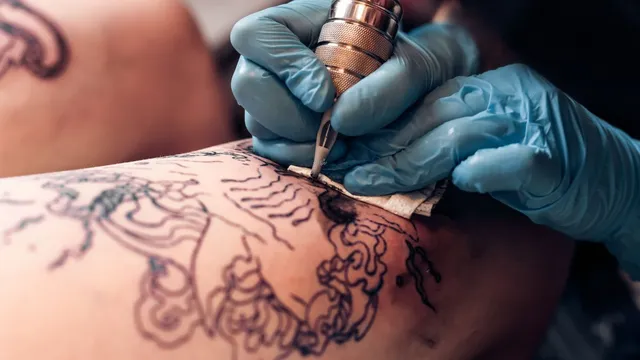- By Priyanka Munshi
- Tue, 23 Jul 2024 05:53 PM (IST)
- Source:JND
While getting tattoos can be a form of self-expression and art, it's important to consider the potential downsides before committing. One of the worst aspects of getting tattoos is the risk of infection. Unsanitary practices or equipment can introduce bacteria into the skin, leading to serious infections that might require medical treatment. Allergic reactions to tattoo inks, particularly those containing certain metals, can cause itching, rashes, or more severe skin issues.
There's also the possibility of scarring, especially if the tattoo doesn't heal properly or if you have a predisposition to keloids, which are raised scars. Tattoo removal is another significant downside. While tattoos are often described as permanent, the reality is that many people later regret their decision and seek removal. This process is expensive, painful, and often not entirely effective, sometimes leaving behind ghostly outlines or discolored skin. Here we have listed all the side effects of getting a tattoo on your body, according to Mayo Clinic:

Tattoos can be a form of self-expression and art, but they also carry risks such as infection, allergic reactions, scarring, and the possibility of removal.(Image Credit: Canva)
Skin Issues:
Tattooing can cause inflammation around the ink, known as granuloma, and can also result in keloids, raised areas due to scar tissue overgrowth.
Skin Infection:
Tattooing can lead to skin infections due to contaminated ink or equipment and poor safety measures in a poorly trained studio.

Unsanitary practices, allergic reactions, and keloids can lead to serious health issues. Despite their permanence, many people regret their decision and seek removal, which can be expensive, painful, and ineffective. (Image Credit: Canva)
Allergies:
Tattoo ink can cause allergic skin reactions, especially red ink, which can persist even years after tattooing, making it more susceptible to allergic reactions.
Also Read: Adopt These 5 Healthy Habits In Your Regular Routine To Reduce Risk Of Brain Disorders
Health Problems:
Tattoo equipment contaminated with infected blood can spread diseases like methicillin-resistant Staphylococcus aureus, hepatitis B, and hepatitis C. Lower your risk by getting a hepatitis B vaccination before tattooing.

